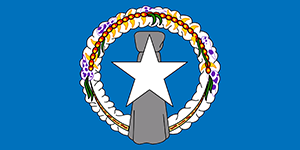Northern Mariana Islands Tax Forms
 North Mariana Islands
North Mariana Islands
The Commonwealth Northern Mariana Islands has its own tax system that is based partially on the tax system of the United States with similar tax rates and tax laws. They are also based on their own taxes levied by the local government. Individuals that get income from the Northern Mariana Islands either file and pay taxes with the local Northern Mariana Islands or with the U.S. Federal government, depending on their residency status.
Since you cannot prepare and e-file a North Mariana Islands Tax Return on eFile.com or anywhere online, you can contact the Commonwealth of Northern Mariana Islands Department of Finance for information on how to do this.
If you have self-employment income, you may have to report your information on Form 1040-SS - you can e-file this form on eFile.com.
However, if you need to complete a Federal Income Tax Return, you can do this on eFile.com, but you need to print it, sign it, and mail it to the IRS since the IRS does not accept e-filed returns with addresses in the North Mariana Islands and other U.S. Territory/Protectorates. Find IRS mailing addresses for your federal tax return and see information on filing state tax returns if you need to file one or more state return. If you want to know basic North Mariana Islands tax information, read on.
Start Now
Northern Mariana Islands and United States Tax Returns
Generally, if you are a bona fide resident of the Commonwealth of Northern Mariana Islands for the whole year, you should file a tax return with the Commonwealth. If you are a citizen of the Commonwealth of the Northern Mariana Islands (either born or naturalized in the Northern Mariana Islands, but not a United States citizen or a resident alien), file your taxes with the Northern Mariana Islands reporting your Northern Mariana Islands income.
If you are a United States nonresident alien that is not a bona fide resident of the Northern Mariana Islands, then you must file a tax return with the Commonwealth of Northern Mariana Islands listing your income earned on the Northern Mariana Islands. You must also file a tax return with the United States government, reporting all income from the United States in Form 1040NR (how to file Form 1040NR). However, if you are a nonresident alien of the United States, but a bona fide Northern Mariana Islands resident, you must file a Northern Mariana Islands tax return, reporting worldwide income but excluding U.S. income. In addition, you must file a U.S. tax return, namely Form 1040, reporting all worldwide income except Northern Mariana Islands income. You tax return will be treated as one of a nonresident alien, meaning you won't be allowed to claim a dependent deduction unless the dependent is a U.S. citizen or national. If you need to add or change any information to your Northern Mariana Islands return after the Northern Mariana Islands accepts it, find out how to prepare, file a U.S. Territory Tax Amendment.
If you are a U.S. citizen or resident alien that is not a bona fide resident of the Northern Mariana Islands or a resident alien, in addition to filing a Northern Mariana Islands tax return that reports all your worldwide income except your U.S. income, you must prepare and e-file or file a U.S. tax return reporting all your worldwide income except your Northern Mariana income. You should report all income from any source in the world. Along with your tax return, you should also file Form 5074 - Allocation of Individual Income Tax to Guam or the Commonwealth of the Northern Mariana Islands. However, if you are a Northern Mariana Islands bona fide resident during the entire year, you are generally not required to file an IRS Federal Tax Return if your only income is from the Northern Mariana Islands. Find out if you need to file a U.S. tax return. On your U.S. tax return, you will not be able to claim any tax credits or tax deductions that are either directly or indirectly linked to the excluded income. You can prepare your U.S. Tax Return or Tax Extension online by clicking the button below:
Start United States Federal Tax Return
Once you complete and e-file your tax return, check the status of your United States Federal Tax Refund if you are expecting a refund. To change or add any information to a Federal Tax Return the IRS accepted, complete and file an Amended U.S. Tax Return.
See other U.S. States, Territories, and Protectorates.
TurboTax® is a registered trademark of Intuit, Inc.
H&R Block® is a registered trademark of HRB Innovations, Inc.